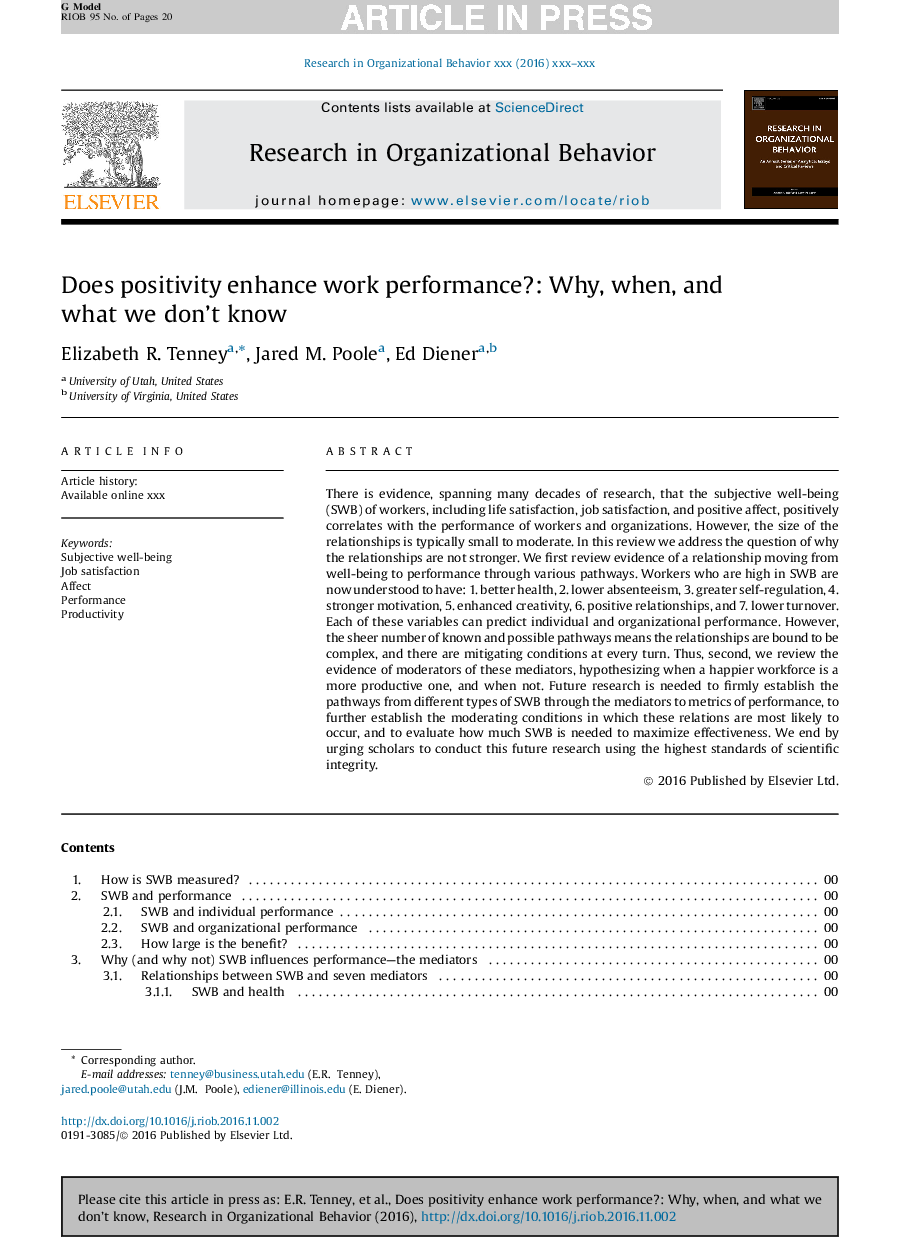| کد مقاله | کد نشریه | سال انتشار | مقاله انگلیسی | نسخه تمام متن |
|---|---|---|---|---|
| 7254230 | 1472196 | 2016 | 20 صفحه PDF | دانلود رایگان |
عنوان انگلیسی مقاله ISI
Does positivity enhance work performance?: Why, when, and what we don't know
ترجمه فارسی عنوان
آیا مثبت کار عملکرد را افزایش می دهد؟ چرا، چه زمانی و چه چیزی ما نمی دانیم
دانلود مقاله + سفارش ترجمه
دانلود مقاله ISI انگلیسی
رایگان برای ایرانیان
کلمات کلیدی
رفاه ذهنی، رضایت شغلی، تاثیر می گذارد، کارایی، بهره وری،
موضوعات مرتبط
علوم انسانی و اجتماعی
مدیریت، کسب و کار و حسابداری
بازاریابی و مدیریت بازار
چکیده انگلیسی
There is evidence, spanning many decades of research, that the subjective well-being (SWB) of workers, including life satisfaction, job satisfaction, and positive affect, positively correlates with the performance of workers and organizations. However, the size of the relationships is typically small to moderate. In this review we address the question of why the relationships are not stronger. We first review evidence of a relationship moving from well-being to performance through various pathways. Workers who are high in SWB are now understood to have: 1. better health, 2. lower absenteeism, 3. greater self-regulation, 4. stronger motivation, 5. enhanced creativity, 6. positive relationships, and 7. lower turnover. Each of these variables can predict individual and organizational performance. However, the sheer number of known and possible pathways means the relationships are bound to be complex, and there are mitigating conditions at every turn. Thus, second, we review the evidence of moderators of these mediators, hypothesizing when a happier workforce is a more productive one, and when not. Future research is needed to firmly establish the pathways from different types of SWB through the mediators to metrics of performance, to further establish the moderating conditions in which these relations are most likely to occur, and to evaluate how much SWB is needed to maximize effectiveness. We end by urging scholars to conduct this future research using the highest standards of scientific integrity.
ناشر
Database: Elsevier - ScienceDirect (ساینس دایرکت)
Journal: Research in Organizational Behavior - Volume 36, 2016, Pages 27-46
Journal: Research in Organizational Behavior - Volume 36, 2016, Pages 27-46
نویسندگان
Elizabeth R. Tenney, Jared M. Poole, Ed Diener,
